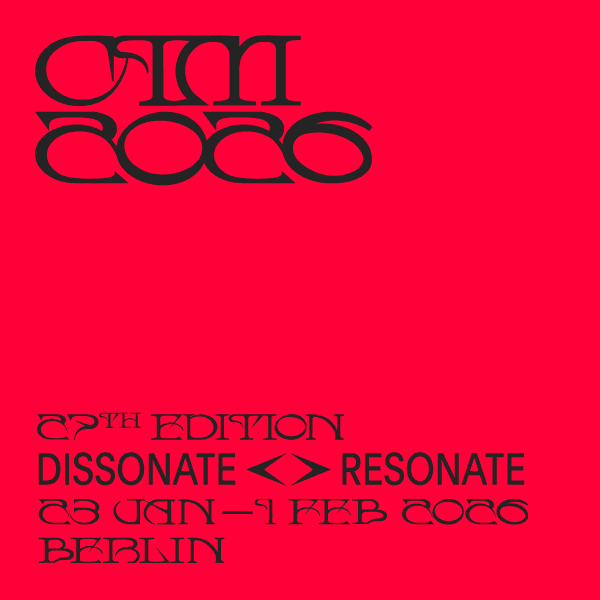
I Most Certainly Will Not Stay Away From Your Theatre
I don’t know what Danish opera would do without the Copenhagen Opera Festival. Ten days with dozens of operas, concerts, and all kinds of events – talks, interventions, work-in-progress showings – officially kicking off on Friday but already starting today, Wednesday, with the premiere of Josefine Opsahl’s EKKO, which in itself is only the first part of an entire operatic cycle on gender and identity.
There are several things I don’t understand. Let’s start with the most tabloid one
Everything that otherwise has a hard time finding space in the established opera scene in Denmark – where experiments and new works are rare – gets a place here: a James Black mockumentary inspired by The Office, Faun Vium and Amanda Drew’s psychosis study Dronning Annabell, Poulenc’s La voix humaine transformed into nightclub-style smartphone reflections, the follow-up to OPE-N’s critically acclaimed LOL – Laughing Out Lonely, now focusing on domestic violence… The list goes on seemingly forever.
On top of all the regular performances, Copenhagen Opera Festival works with a range of formats meant to open the scene to outsiders. From canal cruises to plenary talks and free concerts on Den Røde Plads, the festival’s keyword seems to be openness.
That’s why I was so confused when, just before this year’s festival, I received a message that I would be welcome to stay away from one of the events I planned to cover for Weekendavisen. It didn’t appear to be an idea that had sprung from the festival’s own PR manager, but he was nonetheless the one who had to deliver the message: one of the work-in-progress showings – which are otherwise a central part of the Copenhagen Opera Festival experience, offering the chance to get up close to a work while it’s still being created – had asked that the press not be present.
The PR manager had been informed that the team behind it considered the work-in-progress format to thrive best without evaluations, which he wanted to respect. And he hoped, moreover, that I would understand.
Here I must simply say: I do not!
To refuse press evaluation of what is, in other words, the final result looks like a misunderstanding of the money received from the state to make it happen
Welcome to an unpleasant trend
There are several things I don’t understand. Let’s start with the most tabloid one.
The performance in question is A night with The Gospel According to Jesus Queen of Heaven at Sort/Hvid in the Meatpacking District. This is a theatre that calls itself »the avant-garde stage of Danish theatre« and, in 2024, had its status extended by the Danish Arts Foundation as the Danish »stage for music-dramatic development« through 2029. In other words, an institution heavily dependent on state funding, and therefore normally expected to act professionally towards the free press and let it do its work, so that the taxpayers who foot the bill can get insight into what their money is being spent on.
That’s why this situation is different – though the trend is the same – as when American pop star Sabrina Carpenter earlier this year refused to issue free reviewer tickets for her two concerts at Royal Arena. Or when Danish singer Saint Clara subsequently announced that she, too, did not want meddlesome critics present at future concerts. They operate mostly on market terms, so if they no longer see the point of public conversation, they’re free to ask us critics to buy our own tickets. But a state-funded theatre doing the same? That simply doesn’t hold up.
Then there’s the work itself. Nowhere on either the festival’s or Sort/Hvid’s own website is A Night with The Gospel According to Jesus Queen of Heaven described as a work-in-progress – that is, as a work still in process and later to become something more final. On the contrary, the theatre’s recurring Klub Kreatur format is described as a »one-off performative experiment which only happens that one evening« after a two-week residency.
What the team behind this »explosive opera performance« expected I would write about my experience is hard to say
Is it an experiment? Yes. But it’s no different from much else happening at the country’s smaller, artistic festivals. To refuse press evaluation of what is, in other words, the final result – no matter how experimental – looks like a misunderstanding of the money received from the state to make it happen.
Moreover, it’s not at all unusual for niche media to report on – and evaluate – work-in-progress showings. When you open a process for outside input by inviting a paying audience, the whole point is to invite reflections on the artistic choices.
What the team behind this »explosive opera performance« expected I would write about my experience is hard to say. But whether they asked me to stay away because they think I’d go full Thomas Treo on their »exploration of the Christ figure from a queer perspective,« or because they simply didn’t want any form of outside judgment – even if it would be part of a larger essay on the festival as a whole, which is my own approach to criticism – they have completely misunderstood two things: the task of criticism, and their own right to refuse it (I have, of course, simply bought my own ticket).
This is not the way to manage state subsidies, nor is it the way to approach criticism
Free art, free press
There’s no real need to blow this single misunderstanding out of proportion, even though I was rather annoyed when I received the message. Still, as a critic, I must sound the alarm: this is not the way to manage state subsidies, nor is it the way to approach criticism. Criticism in the sense of the reflection created by the experience of an artistic work, which must unfold in public conversation if art is to be exposed to perspectives beyond those generated within the closed bubble of its own artistic environment.
I’m very much looking forward to seeing A Night with The Gospel According to Jesus Queen of Heaven. Not because I’m hoping for woke experiments to be turned into clickbait headlines in the conservative press, but because experiments like the one the team is creating – with former Blaagaard Teater artistic director Sargun Oshana as director, trans woman May Lifschitz (perhaps known from DR’s Orkestret) as performer, tenor Victor Kassebeer as singer, and DJ HVAD as musician – are exactly what breathe new life into the Danish opera scene.
Fortunately, other creative teams have not yet refused press coverage of their work-in-progress showings at the Copenhagen Opera Festival
That is something I, as an opera critic, actually want to report on. But also to take a position on, think about, respond to, and place in context. If we critics don’t have access to experiments in their pure form, we can’t assess where the large, established productions at, for example, the Royal Danish Theatre could beneficially be more boundary-pushing. That’s one reason performances like this one at Sort/Hvid are so important to cover (it’s also one reason we even have a state-funded stage for music-dramatic development).
Fortunately, other creative teams have not yet refused press coverage of their work-in-progress showings at the Copenhagen Opera Festival: Jesper Lützhøft and Jakob Høgsbro’s philosophical Paradismageren in a concert excerpt and a scene from Rebekka Bohse Meyer and Matias Vestergård’s game-based murder mystery opera Family Constellations, premiering in 2027. (By contrast, the work-in-progress showing of Anna Sofie Keller, Kirstine Fogh Vindelev, and Marlene Schleicher’s RING over Wagner’s tetralogy is listed as a closed event. Why announce it then?)
We are, in fact, on the side of art – of free art
As the description for one of the three interesting panel debates at this year’s festival states, »opera is not done reinventing itself.« That’s essentially the point Copenhagen Opera Festival exists to uphold. It’s also why I keep writing about opera: because, despite its more than 400-year history, the genre is not as locked in as many might think; it is still open to input from its own time.
Hopefully, it will continue also to be open to the free press. We are, in fact, on the side of art – of free art.
Copenhagen Opera Festival takes place 15–24 August in Copenhagen.
English translation: Andreo Michaelo Mielczarek

